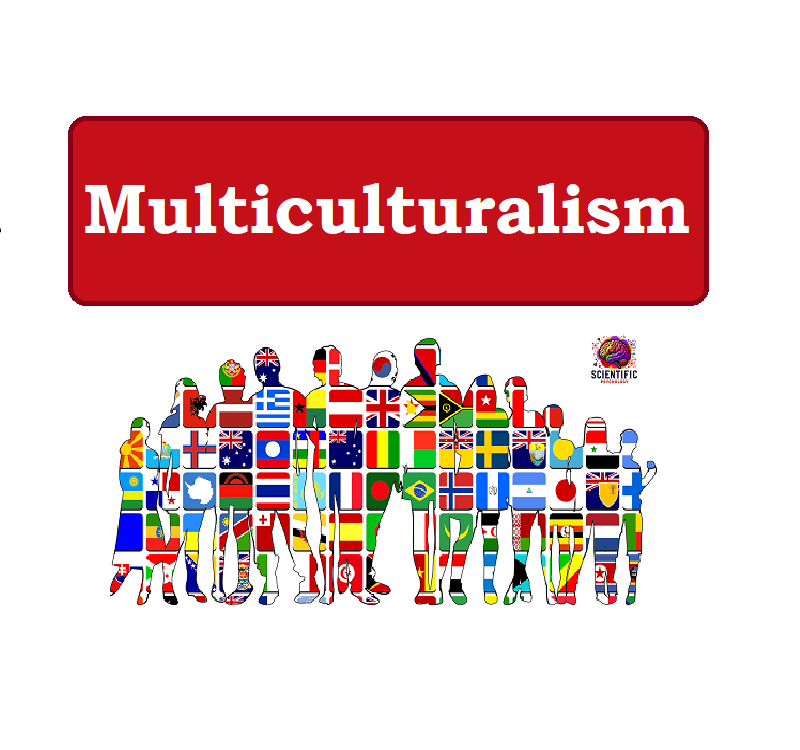
Multiculturalism, as a psychological approach, represents a unique approach to understanding human behavior through the lens of cultural diversity. It seeks to explore the psychological processes that arise from interactions between individuals of different cultural backgrounds, emphasizing the need for inclusivity, equity, and mutual respect. By integrating multicultural principles into psychological theories and practices, this school aims to address the challenges and opportunities presented by cultural diversity in a globalized world.
What is Multicultural Psychology?
Multicultural psychology examines the influence of culture on human behavior, emotions, and thought processes. It delves into how cultural identities, values, and norms shape individual and group dynamics. Unlike traditional schools of psychology that often focus on universal principles, multicultural psychology prioritizes cultural specificity, recognizing that psychological phenomena can vary significantly across different cultural contexts.
For example, in multicultural therapy, a psychologist working with a client from a collectivist culture might focus on family dynamics and community roles, whereas therapy for a client from an individualistic culture might center on personal autonomy and self-expression.
Historical Context and Evolution
The development of multicultural psychology as a distinct school is rooted in the civil rights movements of the mid-20th century and the growing recognition of the psychological impact of cultural diversity. Pioneers in the field sought to address the limitations of Eurocentric psychological models, advocating for an inclusive approach that considers the unique experiences of marginalized groups.
Key milestones include:
- Civil Rights Movement (1960s, USA): Highlighted the need for culturally sensitive psychological practices.
- Emergence of Cross-Cultural Psychology: Laid the groundwork for understanding cultural influences on behavior.
- APA Guidelines on Multicultural Education (2003): Established standards for integrating multiculturalism into psychological research and practice.
Core Principles of Multicultural Psychology
1. Cultural Contextuality
- Recognizes that behavior and cognition are deeply influenced by cultural context.
- Example: Concepts of mental health and illness differ across cultures; what is considered a symptom in one culture may be normal behavior in another.
2. Cultural Competence
- Emphasizes the importance of cultural awareness and sensitivity in psychological practice.
- Example: A therapist learning about a client’s cultural traditions to better understand their worldview.
3. Equity and Inclusion
- Advocates for addressing systemic inequities and promoting representation in psychological research and practice.
- Example: Designing studies that include participants from diverse cultural backgrounds.
4. Intersectionality
- Examines how overlapping identities (e.g., race, gender, socioeconomic status) influence psychological experiences.
- Example: Understanding the unique challenges faced by women of color in predominantly white workplaces.
5. Dynamic Interactions
- Focuses on the interplay between cultural groups and the resulting psychological outcomes.
- Example: Exploring the acculturative stress experienced by immigrants adapting to a new culture.
Applications of Multicultural Psychology
Multicultural principles are applied across various domains of psychology to enhance understanding and effectiveness:
| Application Area | Example Practice | Outcome |
|---|---|---|
| Clinical Psychology | Culturally adapted therapy for immigrant clients | Reduced acculturative stress |
| Organizational Psychology | Diversity training programs for employees | Improved workplace inclusivity |
| Educational Psychology | Multicultural curricula in schools | Enhanced cross-cultural understanding |
| Social Psychology | Research on intergroup relations | Reduced prejudice and discrimination |
Challenges in Multicultural Psychology
1. Prejudice and Bias
- Persistent societal biases can hinder the application of multicultural principles.
- Example: Underrepresentation of minority groups in psychological research.
2. Ethnocentrism in Research
- Traditional psychological theories often reflect Western cultural norms, limiting their applicability to non-Western contexts.
3. Balancing Universalism and Relativism
- Striking a balance between identifying universal psychological principles and respecting cultural specificity remains a challenge.
Multicultural Psychology in Action
1. Therapy
- Incorporates cultural values and traditions into therapeutic practices.
- Example: A therapist using storytelling, a common practice in many Indigenous cultures, as a therapeutic tool.
2. Education
- Develops inclusive teaching methods that respect cultural diversity.
- Example: Introducing bilingual education programs to support linguistic diversity.
3. Policy Advocacy
- Influences policies that promote equity and inclusion.
- Example: Advocating for mental health services tailored to refugee populations.
Future Directions
As societies become increasingly diverse, the importance of multicultural psychology continues to grow. Future research and practice may focus on:
- Developing global psychological frameworks that incorporate diverse cultural perspectives.
- Enhancing cultural competence training for psychologists and other professionals.
- Leveraging technology to provide culturally sensitive mental health resources to underserved populations.
Conclusion
Multicultural psychology, as a school of thought, underscores the significance of cultural diversity in shaping human behavior and experience. By addressing cultural influences and promoting inclusivity, it offers profound insights into the complexities of the human psyche. Its principles not only enhance psychological research and practice but also contribute to building more equitable and understanding societies.







